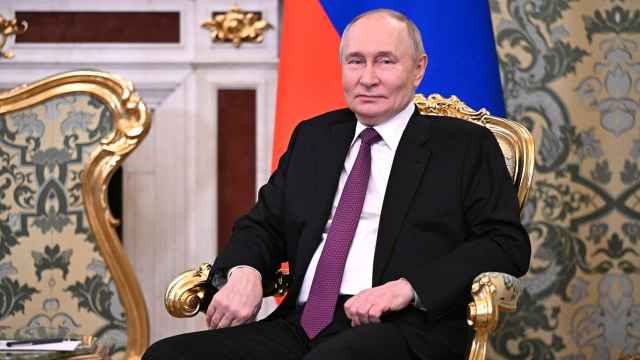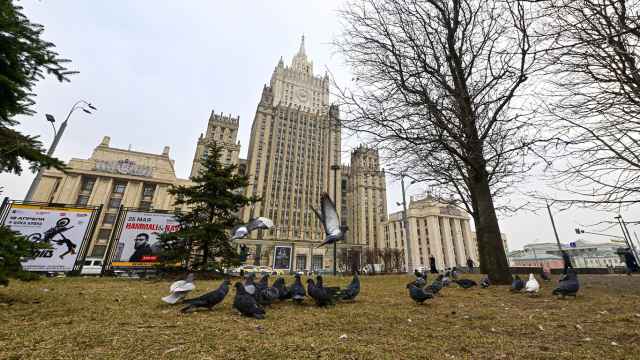COLUMBUS, Mississippi — Severstal met all criteria for getting a U.S. advanced-vehicle development loan criticized by some members of Congress, chief executive Alexei Mordashov said.
Severstal was on the verge of closing a line at its Dearborn, Michigan, plant in 2009 when it applied for the Energy Department loan, Mordashov said in an interview at Severstal's Columbus, Mississippi, plant on Wednesday. The Cherepovets, Russia-based company was the only steelmaker to apply, Mordashov said.
"We saw this opportunity, and we believed we fit very well," said Mordashov, who's ranked by Forbes as Russia's second-richest person with a fortune of $18.5 billion. "We just applied for it, and U.S. Steel didn't. That's the easiest and most powerful explanation."
Some U.S. lawmakers who increased scrutiny of Energy Department loan programs after the bankruptcy of solar-panel maker Solyndra in September have questioned why a Russian steel company that doesn't make vehicles or components was approved for a loan from the department's Advanced Technology Vehicles Manufacturing program.
Severstal in July received conditional approval for a $730 million loan over 18 years from the $25 billion fund, a different Energy Department program than the one that gave Solyndra $535 million in loan guarantees.
Republican Senators Dan Coats of Indiana and Pat Toomey of Pennsylvania on Nov. 7 asked the Energy Department's inspector general to investigate the Severstal loan. Representative Darrell Issa, a Californian Republican and chairman of the Committee on Oversight and Government Reform, asked the department Oct. 27 for "answers about the decision-making processes," saying Severstal didn't need immediate assistance and that its products aren't in short supply in the United States.
The loan helped preserve steelmaking jobs at the Michigan plant, enabling it to supply U.S. automakers as they produce more fuel-efficient vehicles, Mordashov said. High-strength steel is a lightweight formulation of the metal used in automotive frames. Advanced high-strength steels are treated to give them greater tensile strength.
"To make cars more efficient, it's necessary to address all parts of the car," Mordashov said. "We are addressing this with structures made out of steel."
Mordashov spoke after announcing a $550 million expansion of the Mississippi plant, doubling the capacity of a facility that supplies steel to automakers like Bayerische Motoren Werke and Daimler.
Regulators scrutinized Severstal's application for more than two years, vetting it thoroughly, Mordashov said. Severstal's financial strength was a prerequisite for the loan, ensuring that U.S. taxpayers won't be on the hook for missed payments, he said.
Under the program, "companies like Nissan and Severstal can set up an American company and apply for a loan to support a project here in the United States," said Damien LaVera, an Energy Department spokesman. "This is about creating the innovative clean-tech jobs of tomorrow here in the United States."
Ford Motor is the biggest recipient of loans under the advanced-vehicle program, borrowing $5.91 billion, followed by Nissan Motor, which borrowed $1.45 billion. Electric-car producers Tesla Motors and Fisker Automotive have also received loans.
Severstal, which already supplies steel to General Motors and Ford, plans a cold-rolled steel mill and galvanizing line in Dearborn. It acquired the plant in 2004 as part of its $285.5 billion takeover of bankrupt steel supplier Rouge Industries.
Under one incentive program created in a 2005 energy bill, companies such as Ormat Technologies, a unit of Yavne, Israel-based Ormat Industries, are eligible for Energy Department loan guarantees if their projects are located in the United States, according to the legislation. U.S. units of Seville, Spain-based Abengoa have also received loans under the program.
The program from which Severstal received its conditional commitment was created in a 2007 energy bill.
Mordashov said last month that he plans to boost Severstal's production capacity in the United States to 5.2 million tons a year, narrowing the gap with competitors U.S. Steel, ArcelorMittal, Nucor and Steel Dynamics.
A Message from The Moscow Times:
Dear readers,
We are facing unprecedented challenges. Russia's Prosecutor General's Office has designated The Moscow Times as an "undesirable" organization, criminalizing our work and putting our staff at risk of prosecution. This follows our earlier unjust labeling as a "foreign agent."
These actions are direct attempts to silence independent journalism in Russia. The authorities claim our work "discredits the decisions of the Russian leadership." We see things differently: we strive to provide accurate, unbiased reporting on Russia.
We, the journalists of The Moscow Times, refuse to be silenced. But to continue our work, we need your help.
Your support, no matter how small, makes a world of difference. If you can, please support us monthly starting from just $2. It's quick to set up, and every contribution makes a significant impact.
By supporting The Moscow Times, you're defending open, independent journalism in the face of repression. Thank you for standing with us.
Remind me later.





